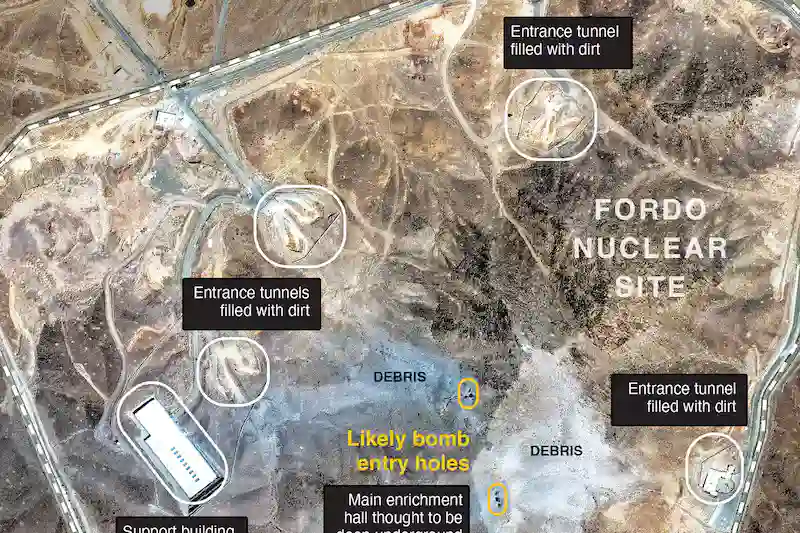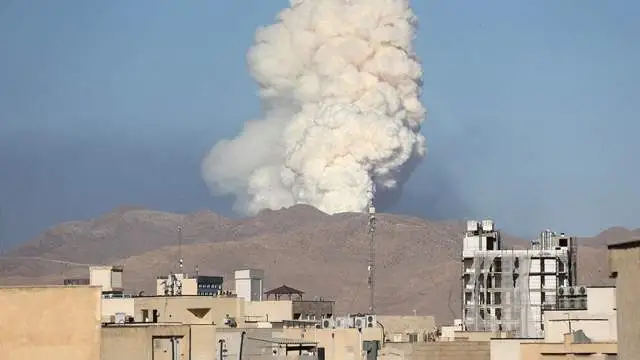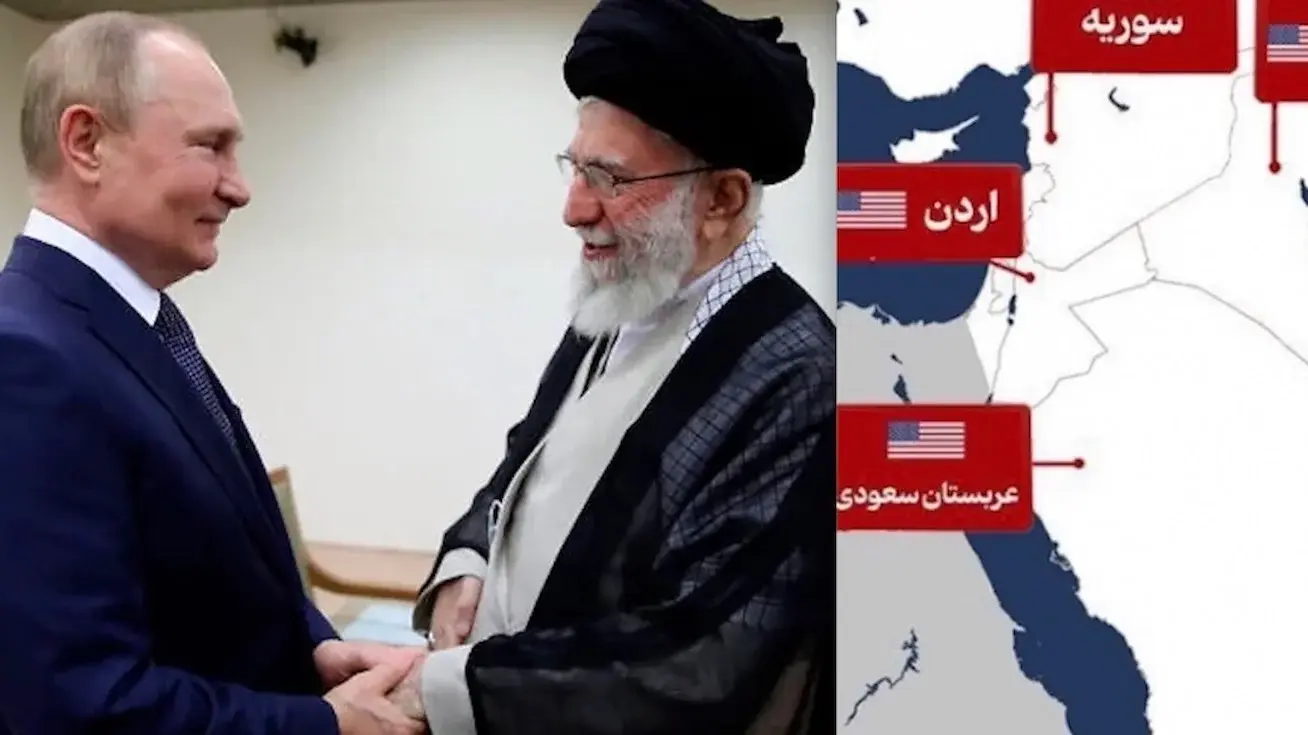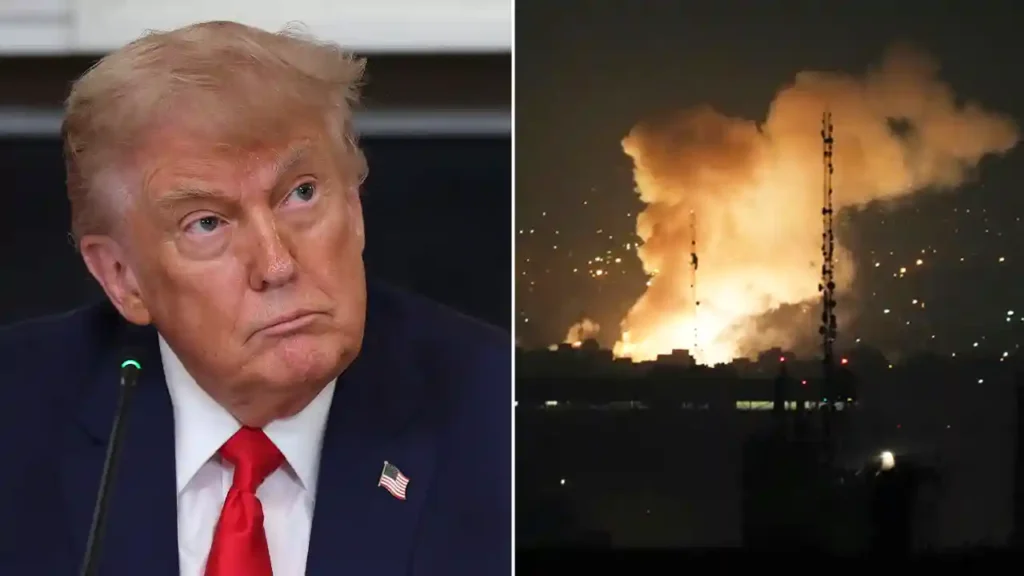In a stunning escalation the United States launched a series of airstrikes on Iran major nuclear facilities in June 2025. Just hours later former President Donald Trump suggested the possibility of regime change in Tehran. This development under what was internally called Operation Midnight Hammer has sent shockwaves through diplomatic circles global markets and international watchdogs. The situation brings back memories of past confrontations but with a new level of political and military uncertainty.
What Is US Attacks Iran Nuclear Facilities Trump Hints at Regime Change

The phrase refers to a recent and highly consequential event in which the U.S. military executed a surprise precision strike on several nuclear facilities in Iran including Fordow Natanz and Isfahan. These facilities are known for housing enriched uranium and advanced centrifuges. Following the attack former President Trump made public remarks that many interpreted as a push toward regime change despite earlier assurances that the operation was limited to nuclear deterrence.
This operation involved high-end military assets such as B-2 bombers, Tomahawk missiles and guided munitions like the GBU-57 Massive Ordnance Penetrator. Intelligence indicated that the mission aimed to cripple Iran nuclear infrastructure while avoiding civilian casualties. Trumps post-strike comments added a layer of political ambiguity causing some confusion among both allies and adversaries.
Trump Claims Monumental Damage to Three Nuclear Sites in Iran

During a press conference following the strike Trump declared that three of Iran most fortified nuclear facilities had suffered monumental damage. He claimed these locations would no longer function in the near term and hinted that the regime in Tehran was now shaken to its core. Trump comments were broadcast worldwide instantly fueling both speculation and concern.
While Pentagon officials confirmed significant damage international inspectors have yet to fully verify the extent of destruction especially to subterranean systems. The statement led many experts to interpret the event not just as a defensive maneuver but potentially as part of a broader geopolitical shift.
Key Benefits and Challenges of the Strike
One of the most immediate benefits was the delay in Iran nuclear enrichment progress. Officials from the Pentagon stated that the damage caused was severe enough to set back Iran nuclear timeline by several years. Additionally the strike demonstrated a robust show of force intended to restore deterrence following months of rising tension in the Middle East.
However the operation has introduced several new challenges. Iran responded with limited missile attacks on U.S. bases in Iraq and hinted at further retaliation if provoked again. Oil prices briefly surged amid fears of a possible blockade of the Strait of Hormuz a key global shipping lane. Theres also growing concern that the U.S. might face diplomatic backlash as some countries view the strike as a unilateral act that violates international norms.
Domestically the operation sparked debates in Congress about the legality and oversight of such military actions. Critics questioned whether the President had the authority to launch strikes without a formal declaration of war. Meanwhile international watchdogs such as the International Atomic Energy Agency are still assessing the full extent of the damage especially to the underground sections of the targeted sites.
Congressional Leaders React to Trump Ordering Attack on Iran

In Washington Trumps decision to authorize the strike without notifying Congress beforehand stirred immediate controversy. Key Democratic leaders criticized the move as a violation of the War Powers Resolution warning that such unilateral military action could drag the nation into another prolonged conflict without public debate or legislative oversight.
House Speaker and several senators called for an investigation into the legality of the operation. On the Republican side reactions were mixed. While some lawmakers supported the strike as a strong stance against nuclear proliferation others expressed concern about its long-term consequences.
This renewed debate over presidential war powers and congressional authority shows how the US Attacks Iran situation is affecting domestic governance as much as it is shaping foreign policy.
How to Understand and Respond to This Situation
Understanding this development starts with tracking official reports from reliable sources. The Pentagon has released detailed briefings on the operational aspects while diplomatic channels are reporting varied reactions from allies and adversaries. Monitoring Iran public statements as well as movements in the region is essential for anticipating the next phase of this unfolding story.
Analyzing the shift in U.S. foreign policy under Trumps reemergence is also important. His speech following the attack signaled a departure from conventional diplomacy toward a strategy reminiscent of his previous maximum pressure campaign. He suggested that Iran current regime could be unstable and even replaceable a comment that carries weight in Middle Eastern geopolitics.
Its also important to consider how this move affects global alliances. European nations have urged restraint and a return to diplomacy while Russia and China have openly condemned the attack. The United Nations has scheduled emergency meetings and some members are pushing for investigations into potential violations of international law.
On a practical level citizens and businesses with interests in the region should prepare for potential disruptions. This includes monitoring shipping lanes especially near the Strait of Hormuz as well as keeping an eye on cyber threats and oil market fluctuations that often follow such conflicts.
FAQs
- What is Operation Midnight Hammer
Operation Midnight Hammer is the codename for the U.S. military strike conducted in June 2025. It targeted Iran major nuclear facilities including Fordow and Natanz using advanced stealth aircraft and precision bunker-buster bombs. The goal was to significantly damage Iran uranium enrichment infrastructure. - Did the U.S. intend to overthrow the Iranian government
Officially U.S. military and defense leaders stated the operation focused solely on disabling nuclear assets. However former President Donald Trumps comments shortly after the attack suggested regime change might be a long-term goal. This has led to conflicting interpretations both domestically and abroad. - How effective was the strike
According to Pentagon officials the strike caused significant delays to Iran nuclear program. Several enrichment sites were reportedly taken offline. However the International Atomic Energy Agency (IAEA) has not yet confirmed the full scope of underground damage and Iran claims to have relocated some materials before the attack. - Is this strike legal under international law
The legality is being debated globally. Iran and some members of the United Nations argue that the attack violated the UN Charter and the terms of the Nuclear Non-Proliferation Treaty (NPT). In contrast the U.S. administration insists it was a defensive measure aimed at neutralizing a growing nuclear threat. - What are the risks of further escalation
The potential for escalation is high. Iran has already launched a limited retaliation and may take further actions via missile strikes cyber warfare or by activating proxy forces in the region. Global powers and diplomatic bodies are closely monitoring the situation to prevent a broader conflict.
Conclusion
The recent U.S. military strike on Iran combined with President Trumps indirect suggestions of regime change has opened a new and serious chapter in global politics and American foreign policy. While the immediate goal of delaying Iran nuclear program may have been strategically successful the political risks are high and could lead to long-lasting consequences. This military action is now under intense debate in the U.S. Congress facing scrutiny in international courts and being closely watched by global intelligence agencies and financial markets. The world is on edge trying to understand what comes next.
What happens moving forward will largely depend on Iran response—whether it chooses military retaliation accelerates its nuclear plans or returns to diplomacy. At the same time the global community is watching to see whether the U.S. continues this confrontational approach or shifts back toward peaceful negotiation. In such a fast-changing situation it is important for people governments and organizations to stay informed separate facts from political statements and prepare for all possible outcomes. The phrase US Attacks Iran now represents more than just an event it reflects a moment of intense international tension with potential global impact.



